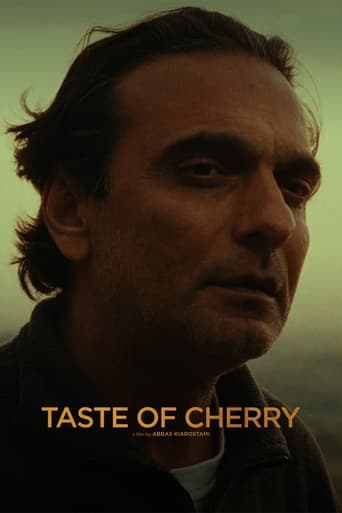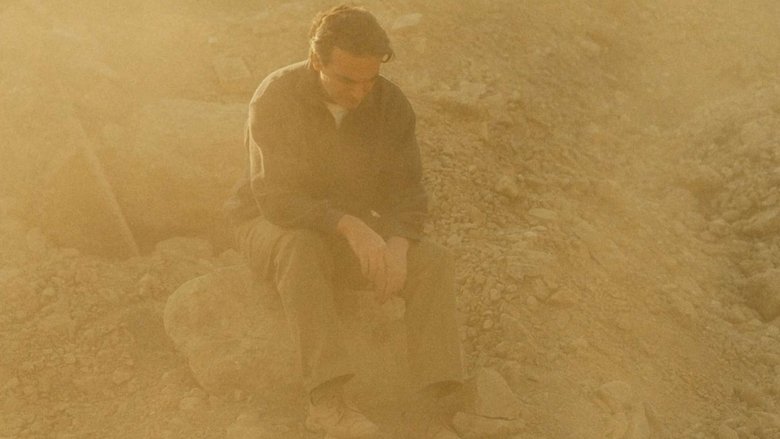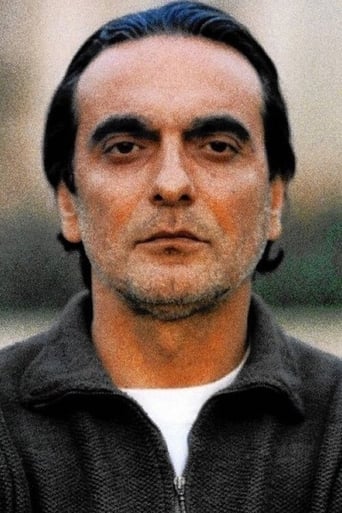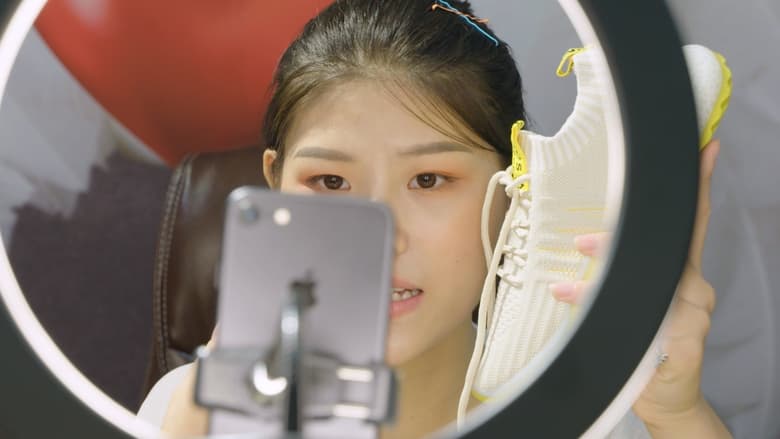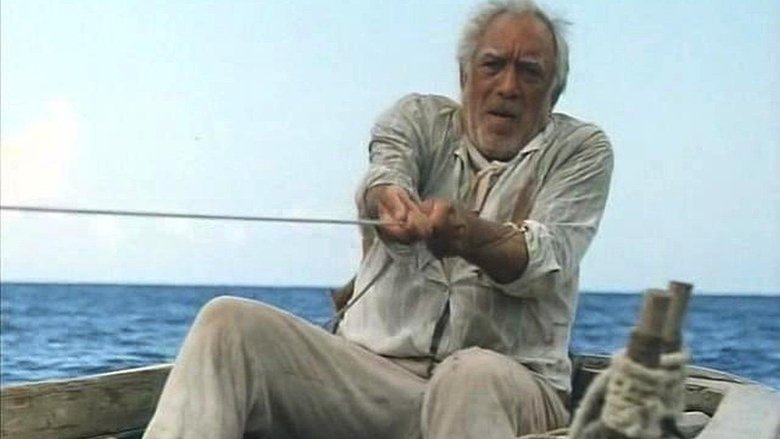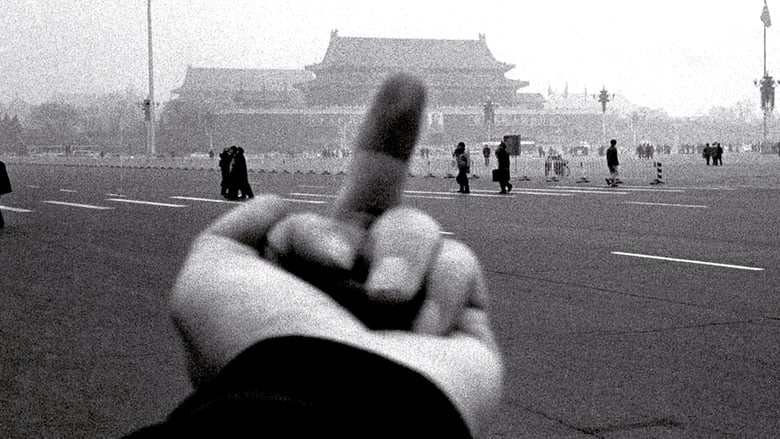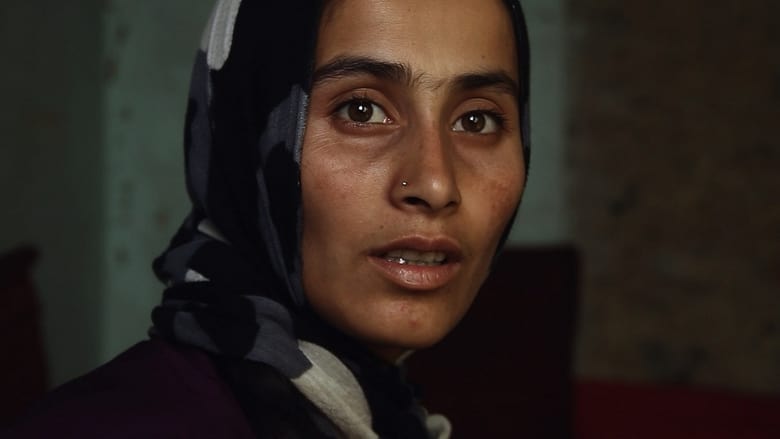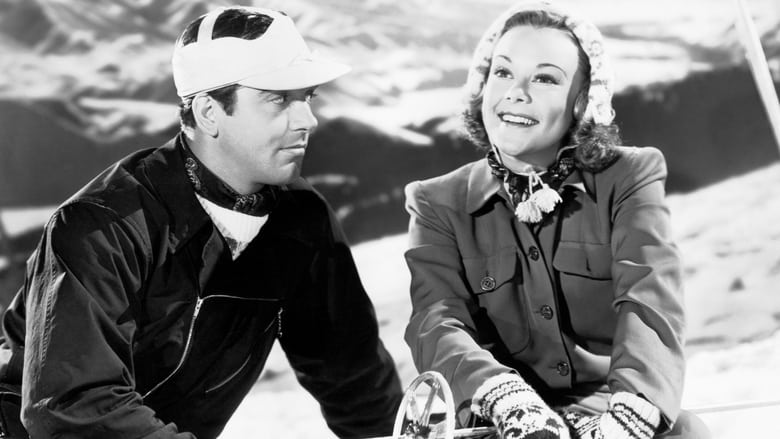A middle-aged Tehranian man, Mr. Badii is intent on killing himself and seeks someone to bury him after his demise. Driving around the city, the seemingly well-to-do Badii meets with numerous people, including a Muslim student, asking them to take on the job, but initially he has little luck. Eventually, Badii finds a man who is up for the task because he needs the money, but his new associate soon tries to talk him out of committing suicide.


Similar titles
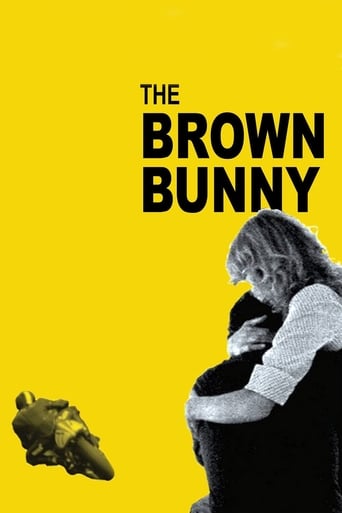
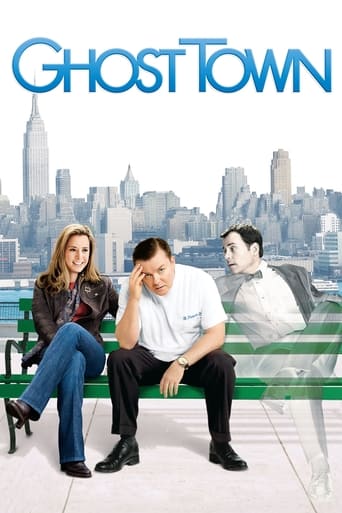
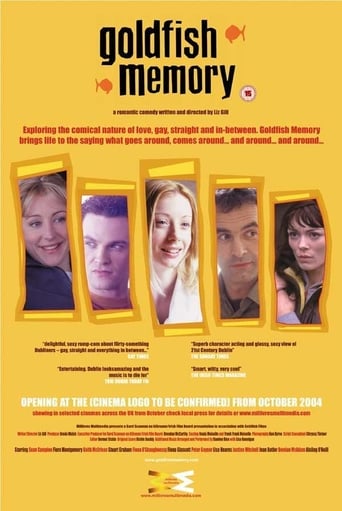
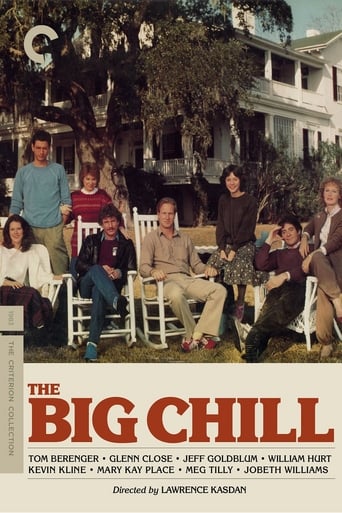
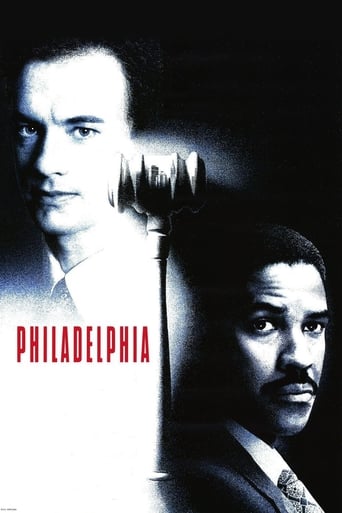
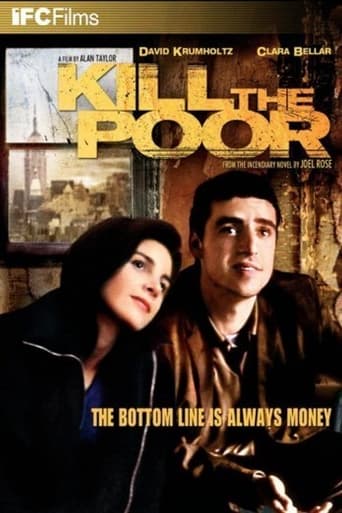
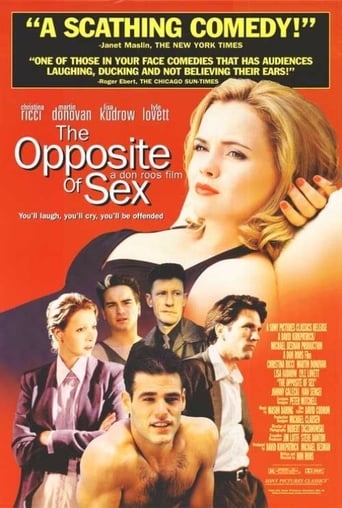
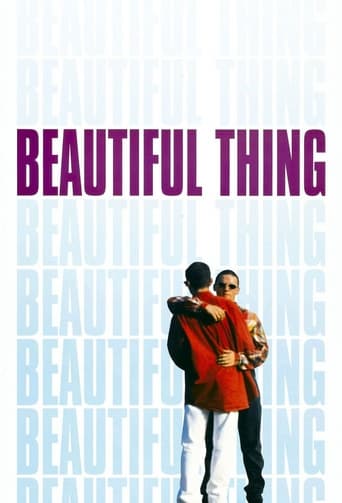
Reviews
I am a student of the course of psychology and the teacher I recommend that you see the video of the flavor of the cherries and that identifies in the protagonist Badii that psychological disorder presents, I would be grateful if you give me the information so that I can continue with my academic work.
There is a certain type of film that is so interesting, and different that it polarizes it's audience in astounding ways. No example better suits this than when Abbas Kiarostami's "Taste of Cherry" premiered at the 1997 Cannes Film Festival. The audience reacted colorfully with cheers and jeers. It was awarded the prestigious Palme D'Or for its excellence. The critics hailed it as a work of genius, except for one. The great Roger Ebert. In fact, he hated it. He called it a "lifeless drone" and "excruciatingly boring". He even placed it in his "Most Hated Films" list. How could a critic of such fascinating intellect and unmitigated love for all of cinema have such harsh words for Taste of Cherry? What was not to understand? Or like? Sitting down to watch this picture for the first time, I felt uncertain, but entirely interested. I've gone through an entire semester of watching so many classic pictures of the world. Some of them have become one of my all-time favorites, and others, you couldn't pay me to watch again. Kiarostami didn't impress me too much with "Where is the Friend's Home?" In fact, if I were to call a film a "lifeless drone", that would be the one. Actually, it would be more like "The Color of Pomegranates", sorry, I'm not quite over that one. Regardless, Taste of Cherry, I found to be a surprisingly sweet end to the semester. It's far from a perfect film, but it's far from anything I would say is boring or bad. If anything, it left a very good impression of Kiarostami for me. The entire film has me wondering about our main character, Mr. Baadi. Who is he? Why is he driving around the Tehran countryside? Why is he constantly looking for hitchhikers to pick up? More importantly, and much to the very point on everyone's minds, why does he want to commit suicide so bad? Every time he picks up a new stranger, he tries to reel them into being his accomplice for his suicide attempt. He just wants someone to bury with. Nobody really understands why. It's not like he's a depressed man of any sort, especially due to how calm he seems as he's talking to the people he is driving. Kiarostami brilliantly tells us nothing about Mr. Baadi's character, except for the fact that he is an awfully lonely man, who just wants to die. It makes the majority of the film's existence seem gloomy and introspectively miserable. Mr. Baadi's truck, almost in itself, seems to symbolize his isolation from the world, the darkness that lurks inside his head, and the shell to which he is about to hide himself in as he lays in his grave. Its almost as if Mr. Baadi is looking to be isolated from the rest of the world forever, but looks for one last companion to join him. It is unclear if he likes company or not, but what is clear is that Baadi seriously has a death wish, and not in the Charles Bronson kind of way. The only section of the film that left me cold was the end. A few minutes before we get a fantastic final scene in which Baadi buries himself in the spot in which he told his passengers to meet him. It's in the early hours in the morning. Kiarostami holds onto a shot of Baadi staring out into the distance, which is framed absolutely beautifully. Then, as Baadi reaches down and lies in the hole, he simply waits, and stares up at the moon. This scene is so peaceful, but so incredibly eerie and sad at the same time. The sense of death was imminent, even though his accomplice never showed up. This would have been the perfect spot to end the picture. But the picture doesn't end. Instead, we are treated to some B-Roll footage of the film. Why did Kiarostami felt the need to put this in? Some have argued that this helps blur the line between reality and fiction for the audience. Some have argued that it lightened up the ending of the film in order to assure the audience that everything was OK in the end, but did a movie like this really warrant such an ending? If anything at all, it just seems really overly self-serving of Kiarostami. Like he just wanted to place himself in the picture somewhere, ala Alfred Hitchcock. I hear that most of what he believes in himself is what inspires him to make movies, so I'm guessing that Kiarostami is one very narcissistic director. The B-Roll footage just didn't work at all with me. It didn't make me feel happier coming out of the film, because I was happy with where it left off to begin with. OK, fine, I like a bit of grimness with my movies. Don't we all, though? Taste of Cherry is a sublime piece of art house cinema, and unquestionably, the masterpiece of Kiarostami. It's a striking soliloquy about the preciousness of life, and the unrequited friendship of others in our darkest hours. It's not a bright film of any sort, but in examining the dark context of suicide, it goes about it with class and fascination.
One of my favourite films ever, a slice of life in its complexity and its unknowability. I found the ending of this film particularly uplifting, a celebration of life as movement and light, as opposed to death as darkness and immobility (a more powerful argument against suicide than so many that are theological) suggesting that life is, after all, just a film, or more importantly that the value of life is precisely in that it is, for what it's worth, a film with a beginning and an ending and no definitive meaning. The music in the end reminds one of the Heideggerian Being-towards-Death, how the beauty of movement and life is in its finitude - much like a film. Kiarostami is as ever a genius for capturing such complexity and so many abstract concepts into one brief film and with so much naturalness.
It's the most ambiguous film of Abbas Kiarostami and most of its ambiguity rises from the ending of the film. As a result, The Taste of Cherry offers various interpretations, assumptions and even controversies. According to Kiarostami, "In general, I think movies and art should take us away from daily life, should take us to another state, even though daily life is where this flight is launched from". I think these words are very valuable to understand Kiarostami's work. He always tried to take his viewers to another state, to a world outside, to arouse their ability of thinking and imagining. As a critic writes, "His cinema carries the utmost respect for an audience as a collection of thinking, intellectualizing individuals: never does he resort to devices intended to blatantly arouse the audience's emotions, edit didactically to make a political point, or instruct via an obvious narrative structure".Mr. Badii, a middle aged man wants to commit suicide. He is searching for a person who will agree to bury his body if he finally succeeds to kill himself. He had already dug up a whole for himself, where he will lie down after taking lots of sleeping pills. All the other person has to do is to bury him. But before that he must make sure that he is dead. Mr. Badii is ready to offer a large sum of money to the person who will help him out. In the beginning we see the worried and nervous looking face of Mr. Badii, riding his car, desperately searching for something. For few minutes we don't understand his mission, what he wants, what he is searching. First he stops at a construction site, asks a young man for something. The young man without saying anything disappears. Then we see him talking to a man carrying plastic bags to sell in a recycle factory. Till now we have no idea what is going on, but the worried face of Badii and his weary inspection of the arid landscape of Tehran entail the viewer that something is going to happen. Gradually we come to know about his mission when he talks about it in detail, to a shy soldier whom he picks up from the road. The Soldier Runs away after hearing the plan though, when he gets a chance.Next he finds a seminarist, an Afghan, who has come to Iran in order to find a job. He patiently listens to Badii and tries to understand him. But seminarist is also firm in his belief. He reminds him that according to Koran, committing suicide is prohibited and this is something that he won't do. Mr. Badii's quest goes on. Finally he finds a taxidermist working at the natural science museum, who agrees to help him. The Taxidermist doesn't seem to have a religious problem, but he is strictly against the idea of committing suicide But no matter what he says, Mr. Badii seems very certain about his decision. Before leaving, the Taxidermist promises him that he will surely do the job.Next we see Mr.Badii at night, driving to the hill in the dark. He lies in the hole and closes his eyes. The screen gets completely dark; we only hear the sound of rain. It stays like this for a while and then we see daylight. We hear the military march and then we see the cameraman with a tripod. After that Kiarostami himself, ordering through the walkie-talkie, followed by the protagonist, Mr. Badii, evidently much more relaxed, offering a cigarette to Kiarostami. The film ends there.The viewer eagerly watching is left disappointed. Well, this is the time for the viewers to start thinking, provided that the viewers are not disappointed to the extent of throwing their shoes.But really, what kind of ending of The Taste of Cherry can satisfy the viewer. What are the possibilities? Mr. Badii closes his eyes, and the screen gets dark. Next morning we see the taxidermist. He either finds him dead or alive. If he is alive, taxidermist would probably arrange for something and take him to his house, where he would take proper care of him till Mr. Badii gets all right. Or the second one, he comes and finds him dead. He takes the money, buries him accordingly and gets on with his life. Which one of the two is satisfying for the viewer? Probably none of them, I mean, we can always think of a third or a fourth possibility if we are creative enough, say for example, next morning we see, it is the taxidermist who is laying inside the hole, and get to know that Mr. Badii is a ground-breaking serial killer. Well, that would surely be a compelling Hollywood mambo-jumbo, isn't it? What is important here is to understand that Mr. Badii wants to commit suicide. His desire of death, his urge to finish his life is important. No matter what the others say, whatever they argue - he is determined. He finds no purpose in living, he Chooses to end it. Whether he successfully dies or not is inconsequential.Why did he want to commit suicide? A vital question unanswered in the film. Kiarostami did not want to go into this. For him the entire project was more of a spiritual one in nature than psychological. When asked about the speculation that Iranian authorities might stop the film from viewing because it dealt with suicide, Kiarostami said, "There was controversy about the movie, but after I talked with the authorities, they accepted the fact that this is not a movie about suicide-it's about the choice we have in life, to end it whenever we want. We have a door we can open at any time, but we choose to stay The movie is about the possibility of living, and how we have the choice to live. Life isn't forced on us. That's the main theme of the movie."
